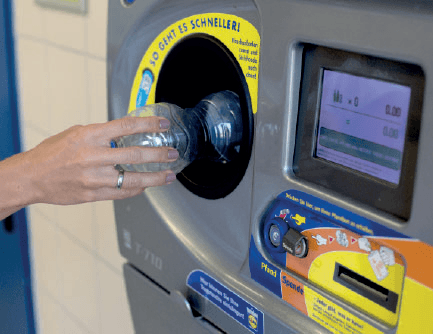
Don’t Forget Non-Drinks Packaging!
Deposit Return Schemes (DRS) are widely cited as a solution to help reduce litter and drive up collection and recycling rates, with 90% plus PET plastic drinks bottle collection rates reported from several schemes. If a DRS is introduced in the UK, the collection and recycling of non-drinks packaging still needs to be transformed to meet future Circular Economy ambitions.
RECOUP investigated the structure and operations behind the headlines for the German and Norwegian Deposit Return Schemes. The rate of collection, materials collected, the deposit paid back to consumers, and the infrastructure in place have all been explored to allow a comparison between the two schemes.
The UK Government recently closed four consultations that aim to meet commitments set out in the Resources and Waste Strategy and the 25 Year Environment Plan to accelerate change to how the UK funds, structures and manages its waste materials. Information and data are now being collated and developed to shape and structure how a DRS could work in the UK.
Steve Morgan at RECOUP said:
“We are keen to explore what a DRS could mean for the UK. This led us to produce the case study of the two widely known schemes and to show some of the differences that exist between them. These are undoubtedly very effective schemes for collecting and recycling drinks containers, but it shouldn’t be lost that drinks, as well as non-drinks packaging, need to be collected and recycled to meet future Circular Economy ambitions and the proposed recycling rates set out in the Government consultations.”
A Deposit Scheme will produce high-quality material of post-use drinks containers. However, it should not be seen as the only solution to reach high plastic packaging collection levels. Should a DRS be implemented in the UK it needs to be designed to complement existing and developing collection infrastructure for all post-consumer packaging: kerbside, bring, Household Waste Recycling Centres (HWRCs) and ‘Away from Home’ collection points, including high footfall locations such as workplaces, transport hubs, and ‘On-the-Go’ locations.
It is also acknowledged as well as opportunities to develop systems a comprehensive consumer behaviour change, education and communication programme about what and how to recycle should be delivered alongside any revised consistency in household and business recycling collections.
The ‘Deposit Return Schemes in Action’ case study is incorporated into our wider Case Studies report produced as a supplement to the 2018 RECOUP UK Household Plastics Collection Survey, an annual research report which provides independent detailed analysis and commentary about the collection of plastics in the UK.
A copy of the RECOUP ‘Deposit Return Schemes in Action’ report is available on the RECOUP website.
RECOUP
+44 (0)1733 390021
Website
Email






